Overview
The Division of Medical Physics hosts three graduate programs, accredited by the Commission on Accreditation of Medical Physics Education Programs (CAMPEP) that prepare students for careers as Board Certified Clinical Medical Physicists, independent investigators, and active contributors to the field.
Our students enter the program from diverse academic backgrounds including physics, nuclear engineering, biomedical engineering and other fields, and they go on to a variety of positions following graduation including clinic, academia, industry, and government.
Master's Degree in Medical Physics
Accredited by CAMPEP in 2010...
The Master of Science in Medical Physics program, accredited by CAMPEP in 2010, provides students the foundational knowledge and hands-on clinical training necessary to practice as clinical medical physicists.
Full-time students complete the program in a minimum of two years. Please contact the program director if you’re interested in enrolling as a part-time or non-degree-seeking student.
Ph.D. in Medical Physics
Accredited by CAMPEP in 2010...
Accredited by CAMPEP in 2010, the Doctor of Philosophy in Medical Physics offers coursework and research training as it is applied to the diagnosis and treatment of human disease. Research interests include the following:
- Functional imaging using positron emission tomography (PET) and nuclear magnetic resonance (NMR)
- Computerized tomography (CT) image artifact removal and deformation
- Radiation therapy dose calculations
- Four-dimensional radiation therapy
- Brachytherapy
For full-time students, this doctoral program takes four to six years to complete. Please contact the program director if you’re interested in enrolling as a part-time or non-degree-seeking student.
Graduate Certificate in Medical Physics
A one year program accredited by CAMPEP
This one-year program is intended for postdoctoral individuals seeking to enhance their credentials for admission into a medical physics residency position. Accredited by CAMPEP, it offers the coursework necessary to meet standards set by the ABR.
Apply Now
Apply to the graduate or certificate programs
To apply for any of our graduate programs, please complete and submit an electronic application through VCU’s graduate admissions page. For a fall semester start, the deadline application is Jan. 15. Late applications will not be accepted.
Apply NowStatistics
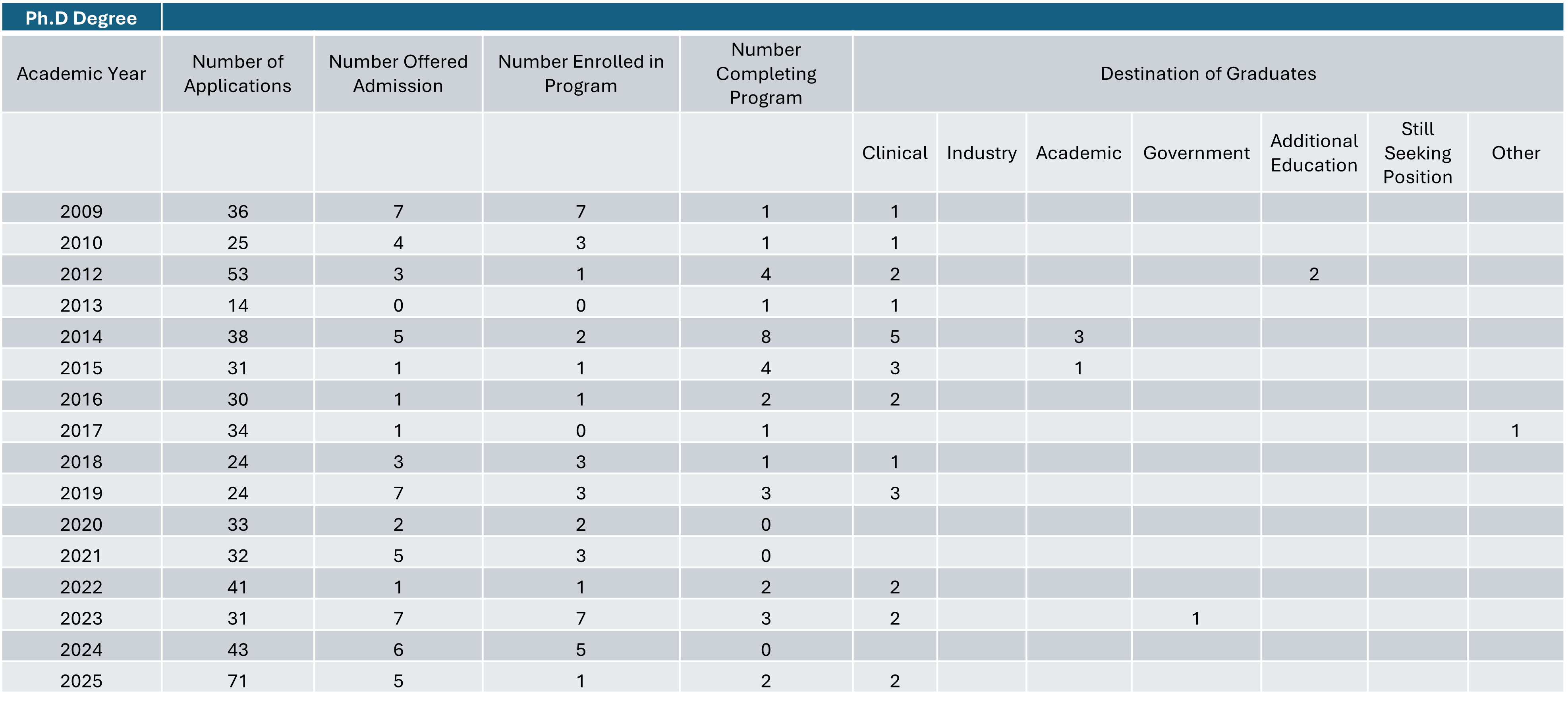
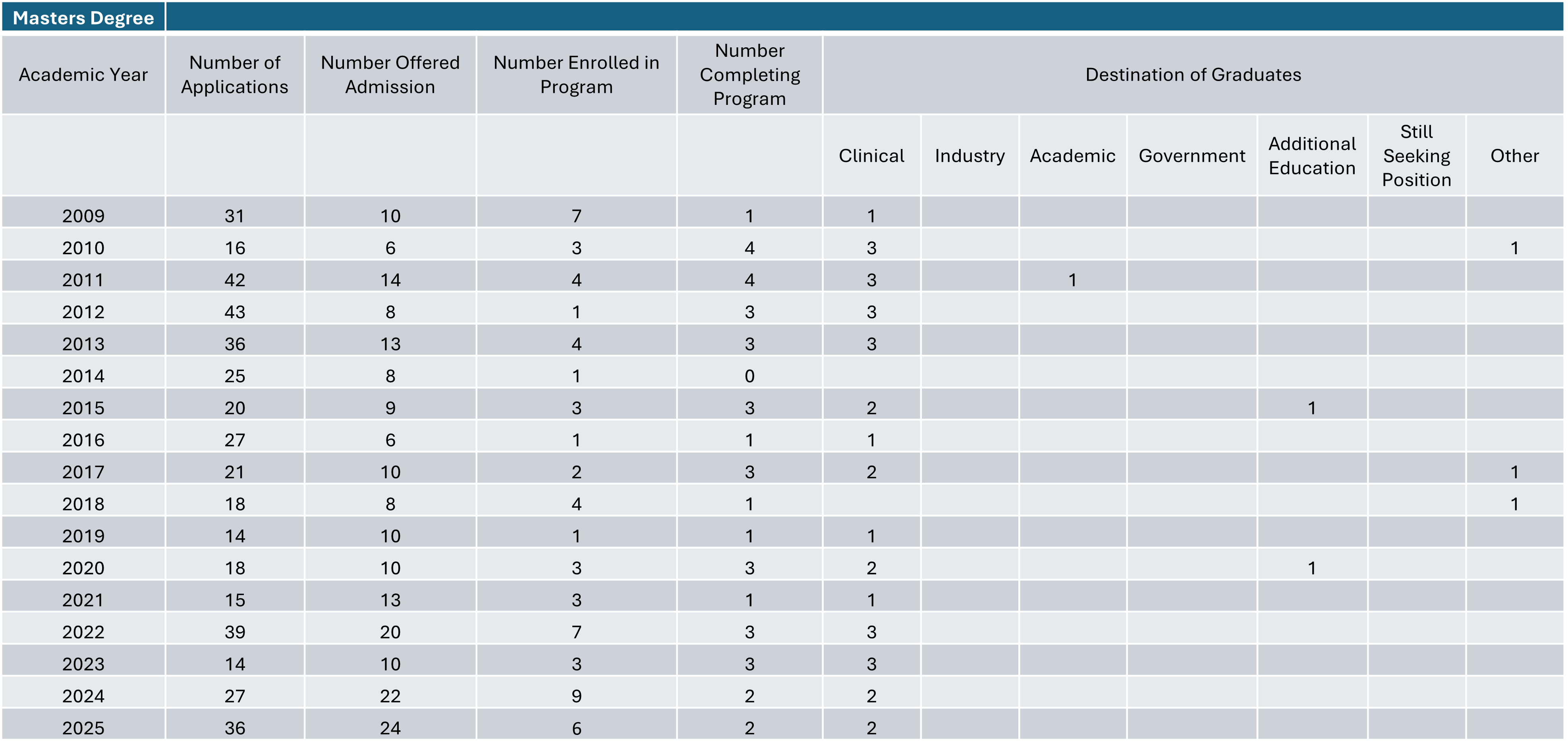
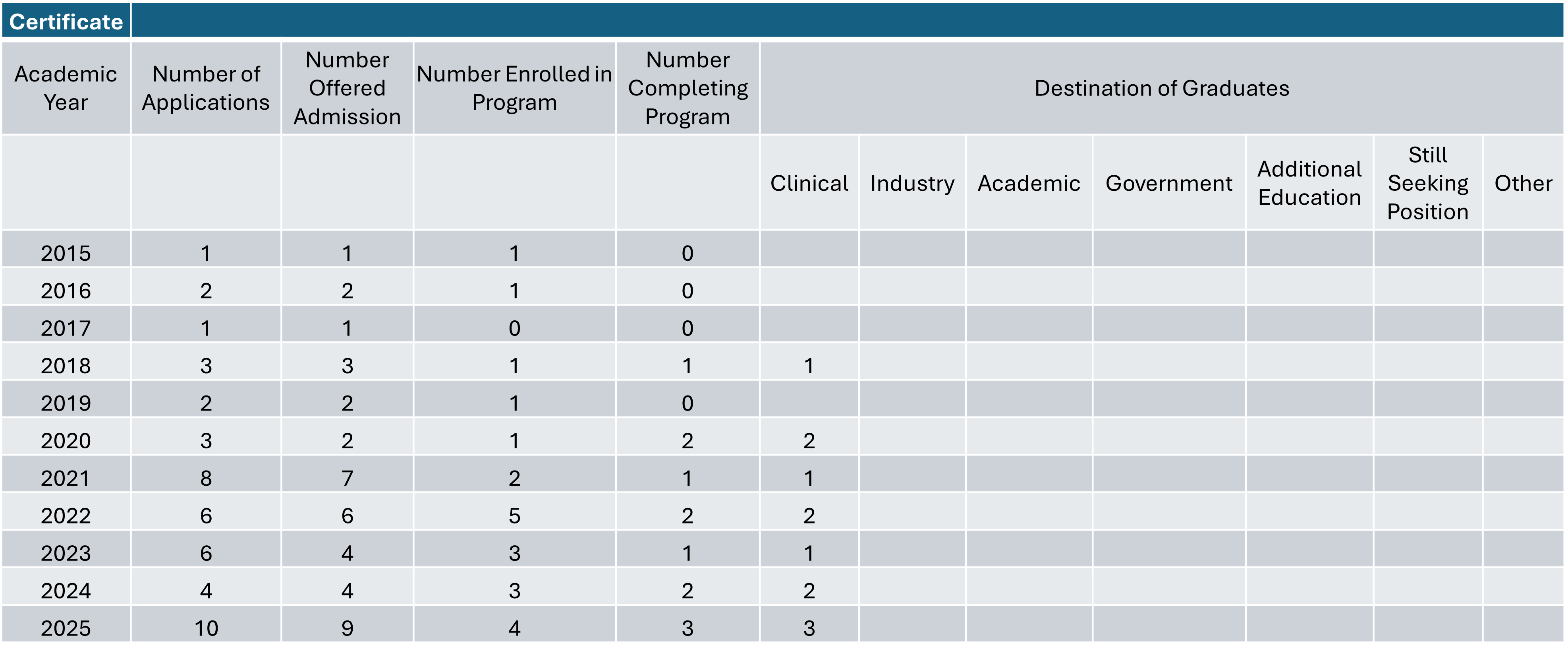
Our Students
The best parts of our graduate program are our students!
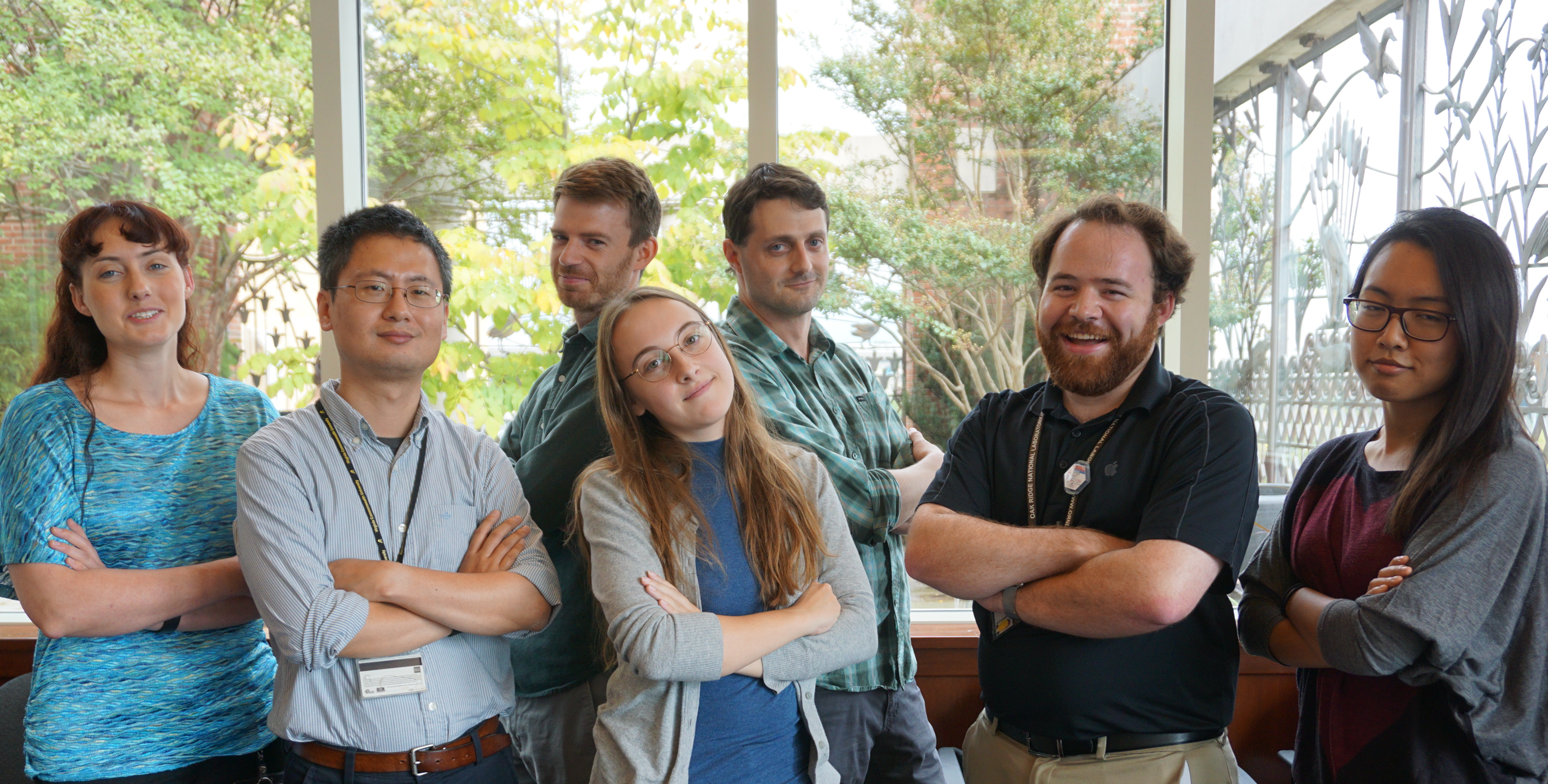 The best parts of our graduate program are our students!
The best parts of our graduate program are our students!
Our program seeks to provide the knowledge and expertise to be able to succeed as clinical and research physicists, and our students take it one step further by seeking to improve the program and the field. The courses and research projects available to students push their academic and professional bounds, but they never cease to amaze us with their ambition, curiosity and dedication to the field.
The future of medical physics is in good hands!
Fall 2025 Students

Fitz Ahmed
MS Student

Fitz Ahmed
MS Student
Radiation Oncology, Division of Medical Physics

Yao Aleke
MS Student

Yao Aleke
MS Student
Radiation Oncology, Division of Medical Physics
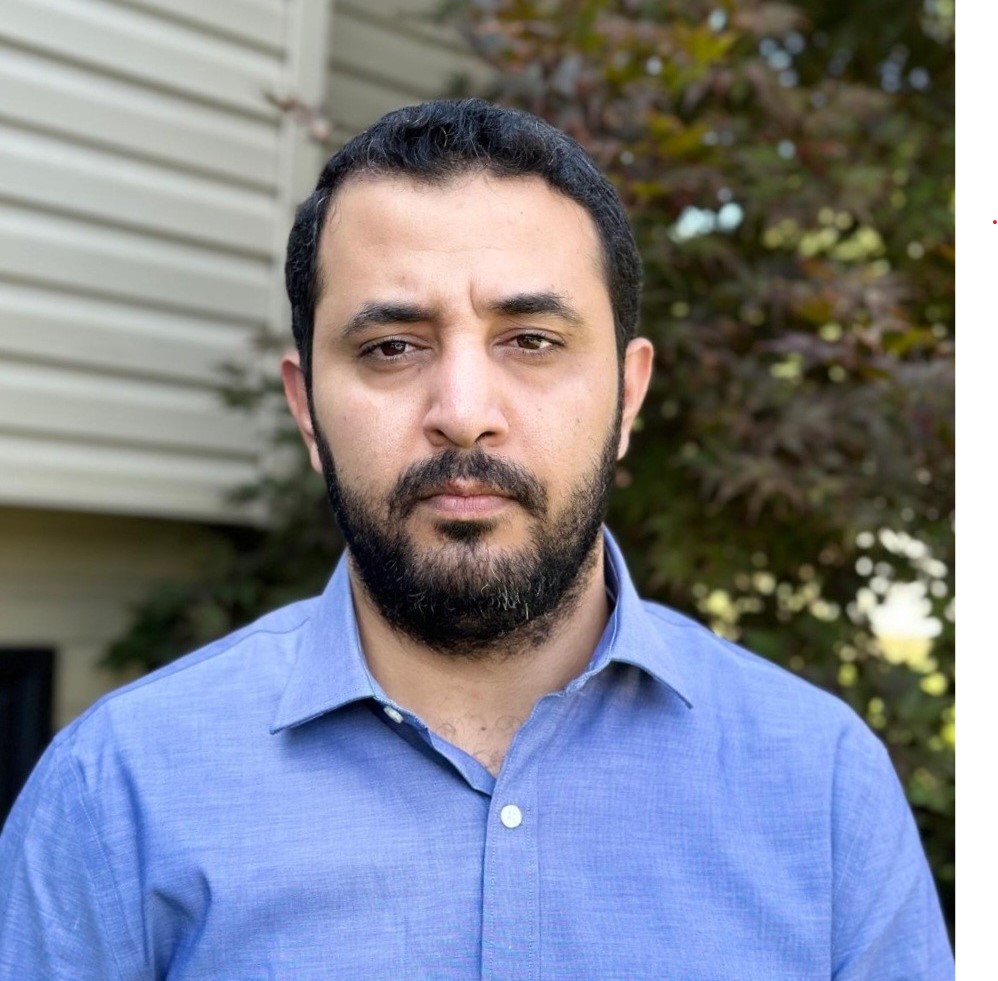
Azam Almolaiki
MS Student

Azam Almolaiki
MS Student
Radiation Oncology, Division of Medical Physics
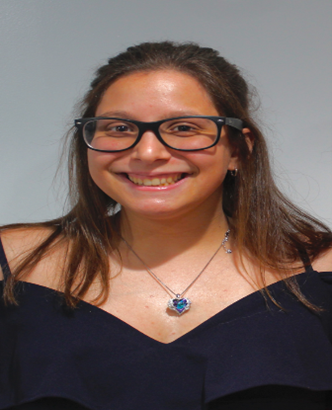
Gabriella Anzalone
MS Student

Gabriella Anzalone
MS Student
Radiation Oncology, Division of Medical Physics

Kara Barbier
MS Student

Kara Barbier
MS Student
Radiation Oncology, Division of Medical Physics

Eric Brass
MS Student

Eric Brass
MS Student
Radiation Oncology, Division of Medical Physics

Nico Castellano
MS Student

Nico Castellano
MS Student
Radiation Oncology, Division of Medical Physics

Valerie Hunsaker
MS Student

Valerie Hunsaker
MS Student
Radiation Oncology, Division of Medical Physics
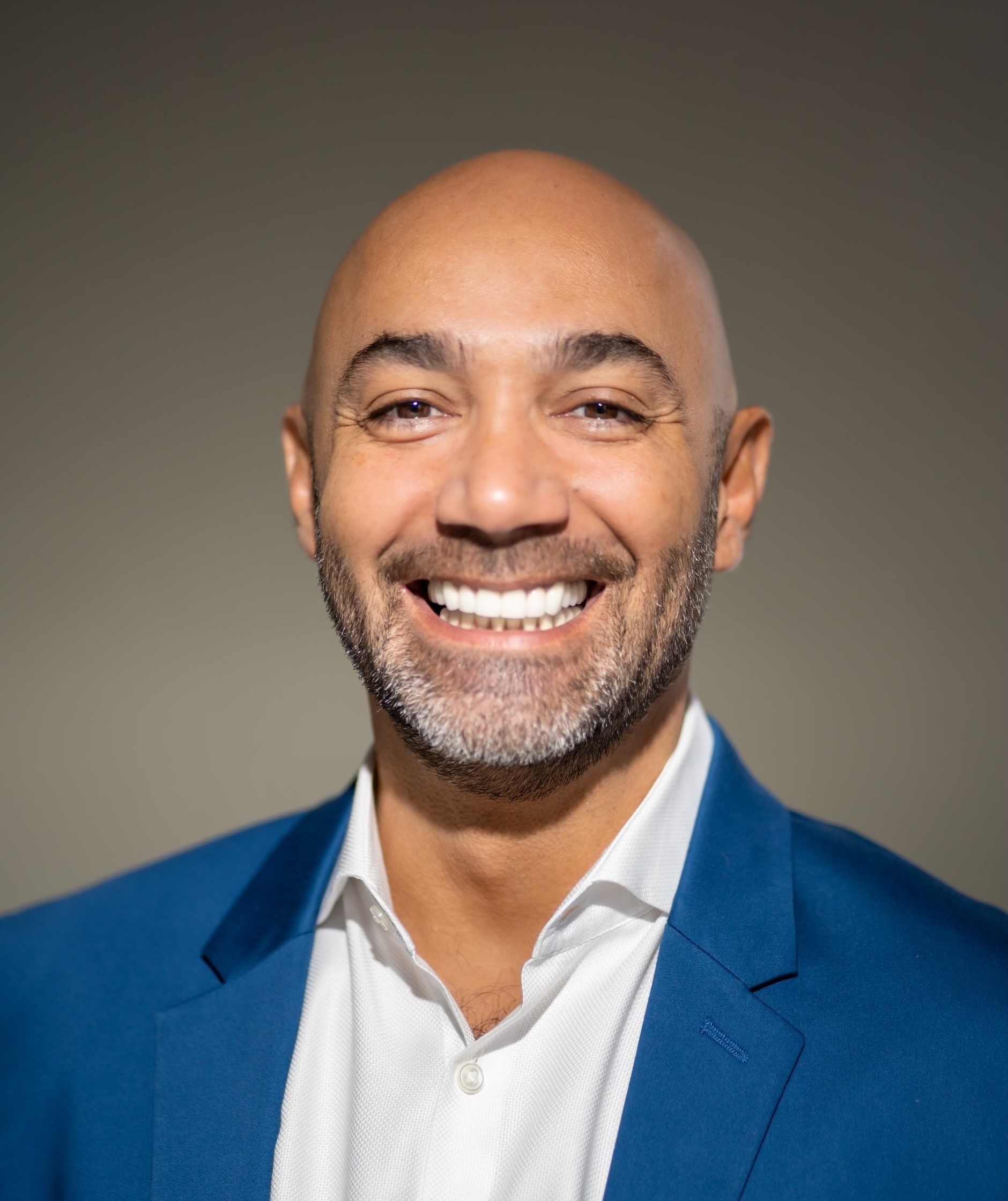
Tomaj Javidtash
MS Student

Tomaj Javidtash
MS Student
Radiation Oncology, Division of Medical Physics

Tim Larson
MS Student

Tim Larson
MS Student
Radiation Oncology, Division of Medical Physics
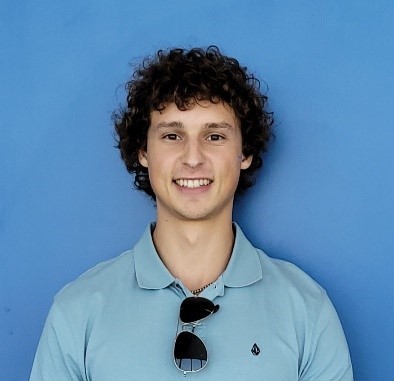
Tyler Laugh
MS Student

Tyler Laugh
MS Student
Radiation Oncology, Division of Medical Physics

Andrew Li
MS Student

Andrew Li
MS Student
Radiation Oncology, Division of Medical Physics

Morteza Mostashari
MS Student

Morteza Mostashari
MS Student
Radiation Oncology, Division of Medical Physics
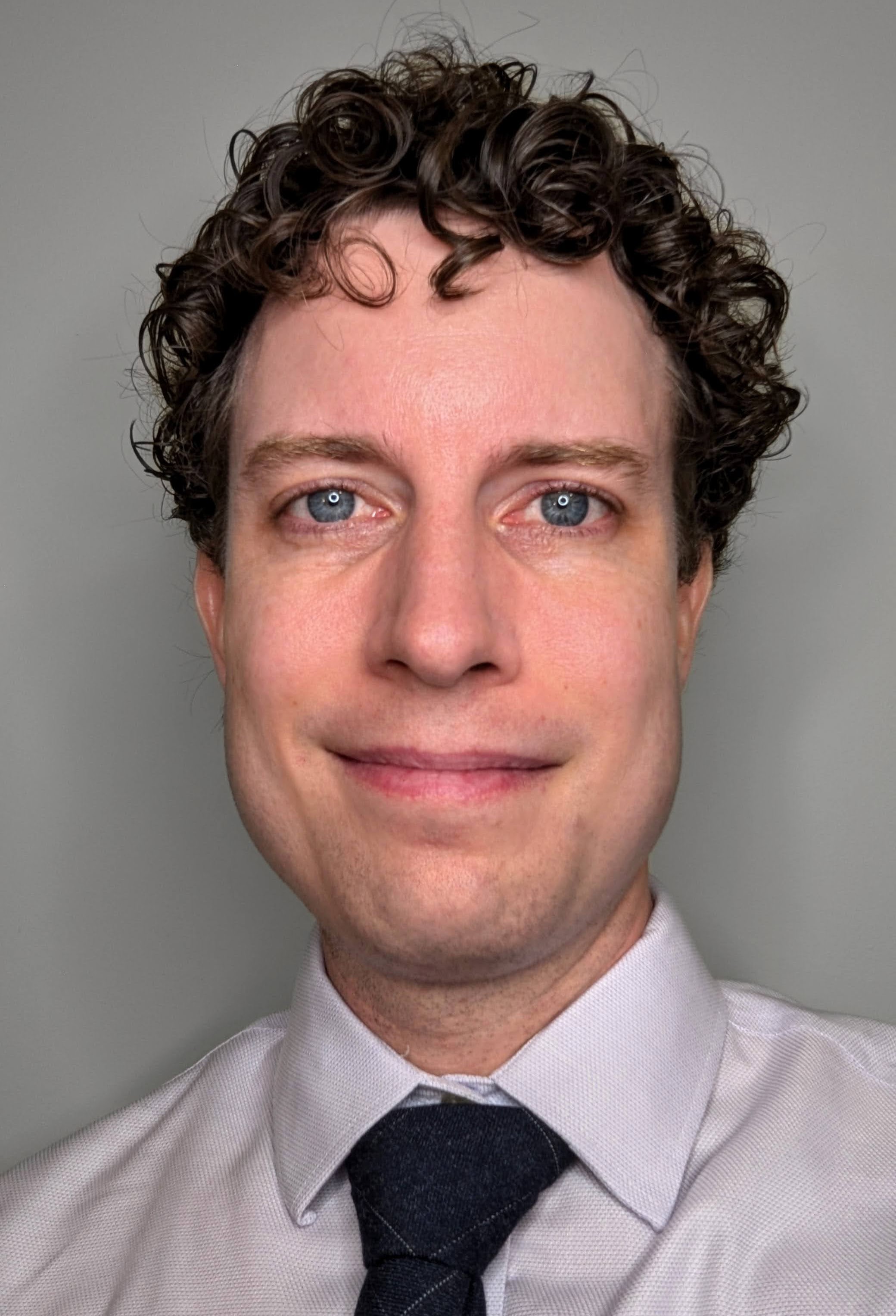
Matthew Richeson
MS Student

Matthew Richeson
MS Student
Radiation Oncology, Division of Medical Physics

Ibtisam Almajnooni
PhD Student

Ibtisam Almajnooni
PhD Student
Radiation Oncology, Division of Medical Physics
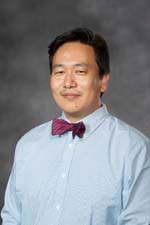
Rabten Datsang
PhD Student

Rabten Datsang
PhD Student
Radiation Oncology, Division of Medical Physics
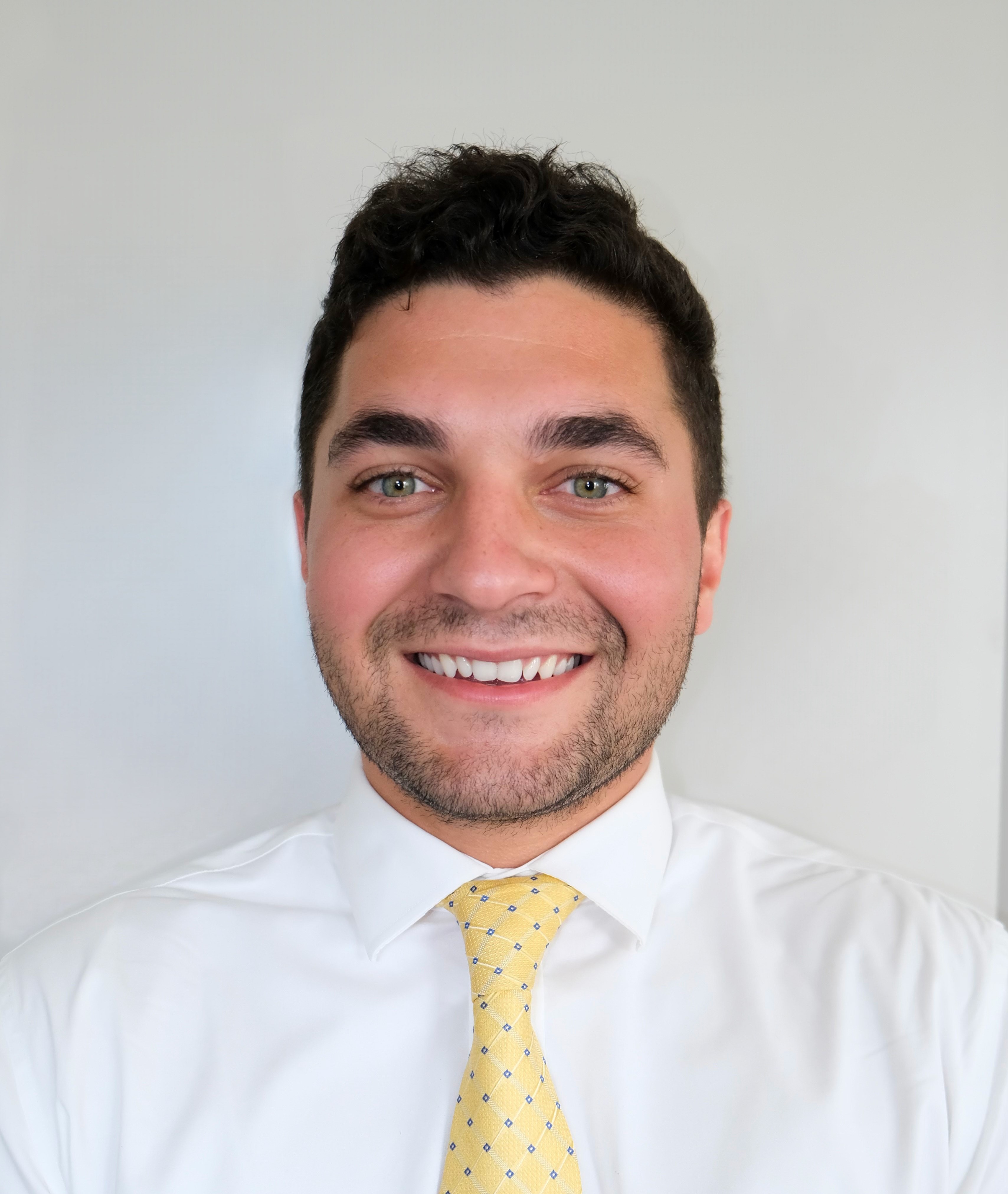
Rob Hawranko
PhD Student

Rob Hawranko
PhD Student
Radiation Oncology, Division of Medical Physics

Matthew Mistro
PhD Student

Matthew Mistro
PhD Student
Radiation Oncology, Division of Medical Physics

Alexander Osman
PhD Student

Alexander Osman
PhD Student
Radiation Oncology, Division of Medical Physics
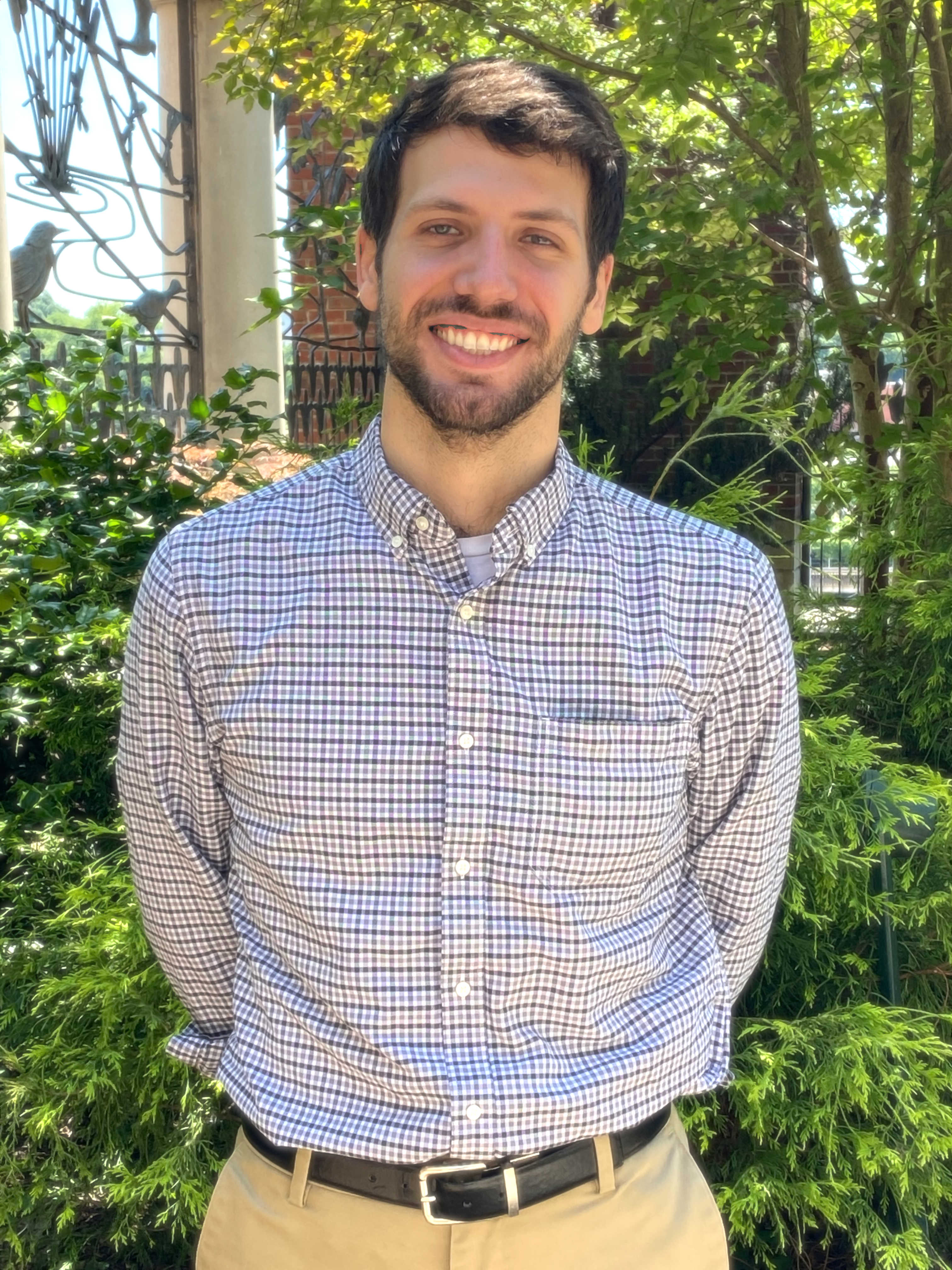
Mitchell Polizzi
PhD Student

Mitchell Polizzi
PhD Student
Radiation Oncology, Division of Medical Physics
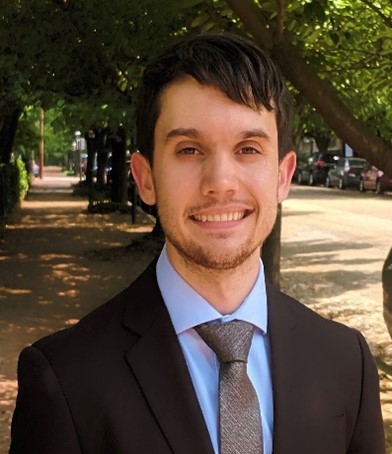
Dylan Richeson
PhD Student

Dylan Richeson
PhD Student
Radiation Oncology, Division of Medical Physics

Ikchit Sangha
PhD Student

Ikchit Sangha
PhD Student
Radiation Oncology, Division of Medical Physics

Kumari Sunidhi
PhD Student

Kumari Sunidhi
PhD Student
Radiation Oncology, Division of Medical Physics
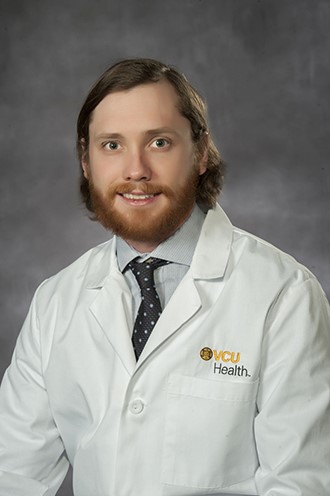
Ryan Wargo
PhD Student

Ryan Wargo
PhD Student
Radiation Oncology, Division of Medical Physics

Kiran Dhakal
Certificate Student

Kiran Dhakal
Certificate Student
Radiation Oncology, Division of Medical Physics
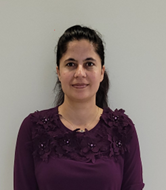
Pushpa Pandey
Certificate Student

Pushpa Pandey
Certificate Student
Radiation Oncology, Division of Medical Physics

Sunil Pokharel
Certificate Student

Sunil Pokharel
Certificate Student
Radiation Oncology, Division of Medical Physics
Graduate Education Program FAQs
What is the Medical Physics Graduate program curriculum at VCU?
Typical plans of study for the Masters, PhD, and Certificate degrees can be found in the Student Handbook and under the graduate program tab of this website.
How long does the program take to complete?
For full time students, the typical completion time for an MS degree is 2 years, a PhD is 4-6 years, and the Certificate 1 year. Please note that there are time limits to complete a VCU graduate degree set forth by the university.
Can I enroll in the program as a part-time student?
Yes. If you’re interested in enrolling part-time, please contact the program director.
Can I enroll in classes as a non-degree seeking student?
Yes. If you’re interested in enrolling in classes as a non-degree seeking student, please contact the program director.
Do you offer evening/online courses?
No. Evening and online courses are not currently offered through the Medical Physics Graduate program.
How do I apply?
To apply to the VCU Medical Physics Graduate program, you must complete and submit an electronic application through the university's graduate admissions page. To learn more about the application process, please visit the VCU Graduate School website.
Please see the International Students section in the FAQ for information on international student applications.
What is the deadline?
The admissions deadline for the VCU Medical Physics Graduate program is January 15. New students are matriculated for the fall semester. Late applications will not be accepted.
Do you accept students for the spring semester?
No. New students are matriculated for the fall semester.
What are the admission requirements?
The admissions requirements and prerequisites for our PhD, MS, and graduate certificate programs can be found in the VCU Graduate Bulletin. Additionally, feel free to contact us; we are happy to answer any questions you have regarding the program.
The list below summarizes the current requirements:
- Prerequisite courses: Students must have a minimum of 30 credit hours in undergraduate physics, physical science or engineering, of which at least 18 credit hours must be at the upper level. Specific upper-level physics and mathematics courses are required; please see the Graduate Bulletin for more details.
- Transcripts: Transcripts from all previous higher education institutions are required.
- Personal statement: A personal statement may include a student’s academic/research background, reasons for interest in the program, and goals/future plans in the field of medical physics. There is no word limit.
- Letters of Recommendation: Three are required; recent reference letters are highly encouraged.
Do I have to connect with a potential graduate adviser before I begin the application process?
No - Applicants do not meet with individual faculty to discuss their interests prior to being accepted and arriving on campus for the fall entry term. Admitted students are matched with faculty once they arrive on campus to begin their degree.
When do you notify candidates regarding the status of their application?
Typically, candidates are notified no later than March.
How do I apply as an international student?
To apply as an international student, please visit the Graduate School's International Admissions page or contact the Global Education Office.
What is the admissions deadline for international applications?
The admissions deadline for international applications is the same as the standard deadline – January 15. Late applications will not be accepted.
What are the admission requirements for international students?
The admissions requirements and prerequisites for our PhD, MS, and graduate certificate programs can be found in the VCU Graduate Bulletin. Additionally, feel free to contact us; we’ll be happy to answer any questions you have regarding the program.
The list below summarizes the current requirements:
- Prerequisite courses: Students must have a minimum of 30 credit hours in undergraduate physics, physical science or engineering, of which at least 18 credit hours must be at the upper level. Specific upper-level physics and mathematics courses are required; please see the Graduate Bulletin for more details.
- Transcripts: Transcripts from all previous higher education institutions are required.
- Personal statement: A personal statement may include a student’s academic/research background, reasons for interest in the program, and goals/future plans in the field of medical physics. There is no word limit.
- Letters of Recommendation: Three are required; recent reference letters are highly encouraged.
- Proof of English Proficiency: For more information, please see the Global Education Office link below.
Where can I learn more about international admissions at VCU?
For more information on international admissions, including general requirements, immigration services and English proficiency exams, please contact the Global Education Office.
How do I submit documents that are not in English?
You will need to get your documents officially translated when applying for the program. You can find a list of professional evaluators recognized by VCU on the International Admissions page, under the "Required materials" tab.
Who can help me with my visa?
Please contact the Global Education Office for information and advice regarding visas and immigration services.
How do I apply?
To apply to the VCU Medical Physics Graduate program, you must complete and submit an electronic application through the university's graduate admissions page. To learn more about the application process, please visit the VCU Graduate School website.
Please see the International Students section in the FAQ for information on international student applications.
What is the deadline?
The admissions deadline for the VCU Medical Physics Graduate program is January 15. New students are matriculated for the fall semester. Late applications will not be accepted.
Are GRE scores required to apply?
No. We do not require GRE scores.
Do you require official transcripts?
Yes. The VCU Graduate School requires one original official transcript for application to the program. If the transcript is not in English, an official English translation is also required.
However, during the application review process you may upload an unofficial transcript to your application portal. If accepted to the program, official transcripts must be sent directly from your former institutions.
Do you accept international transcripts?
Yes. The VCU International Admissions requires only one original official transcript, and if it is not in English, an official English translation is also required. More information can be found under the "Required Materials" tab on the International Admission page.
My letters of recommendation are old. Is that ok?
The content of recommendation letters is strongly considered by the Graduate Admissions Committee, so recent letters are highly preferred. Please ensure your application includes the 3 required letters of recommendation.
Do I need proof of English proficiency?
Yes. Applicants whose native language is not English must submit scores for the Test of English as a Foreign Language (TOEFL), the International English Language Testing System test, or the Pearson Test of English. Please arrange for the testing agency to send the results to VCU (code 5570).
For more information on English proficiency exams, please refer to the Proof of English proficiency requirement on VCU's international admissions page.
Our department does not have minimum or "cut-off" English proficiency exams scores by which we filter applicants; your scores will be considered as one factor among many in your application.
I've earned my degree (bachelor's, MS, PhD) from an accredited institution in the US. Do I still need to take an English proficiency exam?
No. Please refer to the Proof of English proficiency requirement link above.
Are all students in the Medical Physics Graduate program funded?
MS and certificate students are not directly supported by the program at this time.
PhD students may be funded by our program with either a research assistantship (RA) or teaching assistantship (TA). For PhD students, your application to the graduate program effectively serves as your financial aid application.
Where can I learn more about tuition and fees?
You can learn more through VCU’s Student Accounting website. This page also provides information regarding costs and payment plans, as well as a tuition calculator for cost estimates.
Where can I learn more about financial aid at VCU?
Please contact VCU’s Financial Aid Office (MCV Campus) or visit the Financial Aid website for more information.
Are there any scholarships or fellowships available?
There are many external funding opportunities available; the ones listed below are just a few examples:
I’m interested in medical physics, but I haven’t had much experience in the field. Is that OK?
Yes. The Medical Physics Graduate Program is designed, in part, for non-traditional students hailing from varied backgrounds and experiences.
However, there are some prerequisites. Your math education should be at least through differential equations and your physics education must include upper-level physics courses. For more information, please see our admission requirements.
Can I transfer credits from another school?
Yes, but there are limitations. Please see the Graduate Bulletin website for information on the university’s transfer credit policies.
Can I transfer credits from VCU?
Yes, but there are limitations. Please see the Graduate Bulletin website for information on the university’s transfer credit policies.
I already have an MS in medical physics and want to pursue a PhD at VCU. How does this work?
The PhD program requires 18 credits of post-masters didactic coursework. This is applicable whether you graduated with an MS in medical physics from VCU and are now coming back for your PhD, or you obtained your degree from another institution.
The 18 credits must be relevant to your PhD research project and can be selected with the guidance of your PhD adviser.
Please note that one of the requirements of our PhD program is a comprehensive written candidacy exam that includes all medical physics topics covered in our core curriculum. All PhD students have to pass this exam, regardless of where past courses were taken.
I already have an MS degree, but it’s NOT in medical physics. How do I pursue a PhD at VCU?
The PhD program requires 18 credits of post-masters didactic coursework.
If you enter with an MS from a discipline other than medical physics, the 18 credits of required post-masters didactic coursework would mainly be comprised of medical physics courses. A specific list of courses can be determined with help from your PhD adviser.
Is there parking available for students and residents on campus?
Yes. VCU offers parking to both students and employees. Transportation around campus is provided free-of-charge via the RamRide and RamSafe shuttle services. Additionally, unlimited transportation around Richmond using the GRTC public transit system is available to VCU students and employees free of charge.
For the most up-to-date parking rates and transportation information, please visit the VCU Parking and Transportation site.
Where can I find more information about the Richmond (RVA) area?
If you want to know a bit about VCU, a good place to start is the main VCU website. VCU's All About Richmond page has additional details on living and studying in RVA.
Information for prospective students, ranging from the application processes to financial aid, can be found on VCU's Admissions page. VCU's Graduate School website also provides a listing of university resources and services.
For international students, the Global Education Office's website provides additional information, resources, and contacts.
Contact Us
For official correspondences with the Medical Physics Educational Programs, please address requests and inquiries to the following address:
VCU Department of Radiation Oncology
Medical Physics Educational Programs
Adult Outpatient Pavilion, 3nd Floor
1001 East Leigh Street
Campus Box 980058
Richmond, VA 23219
P: +1.804.628.8166
F: +1.804.828.7981
E: medphys@vcu.edu
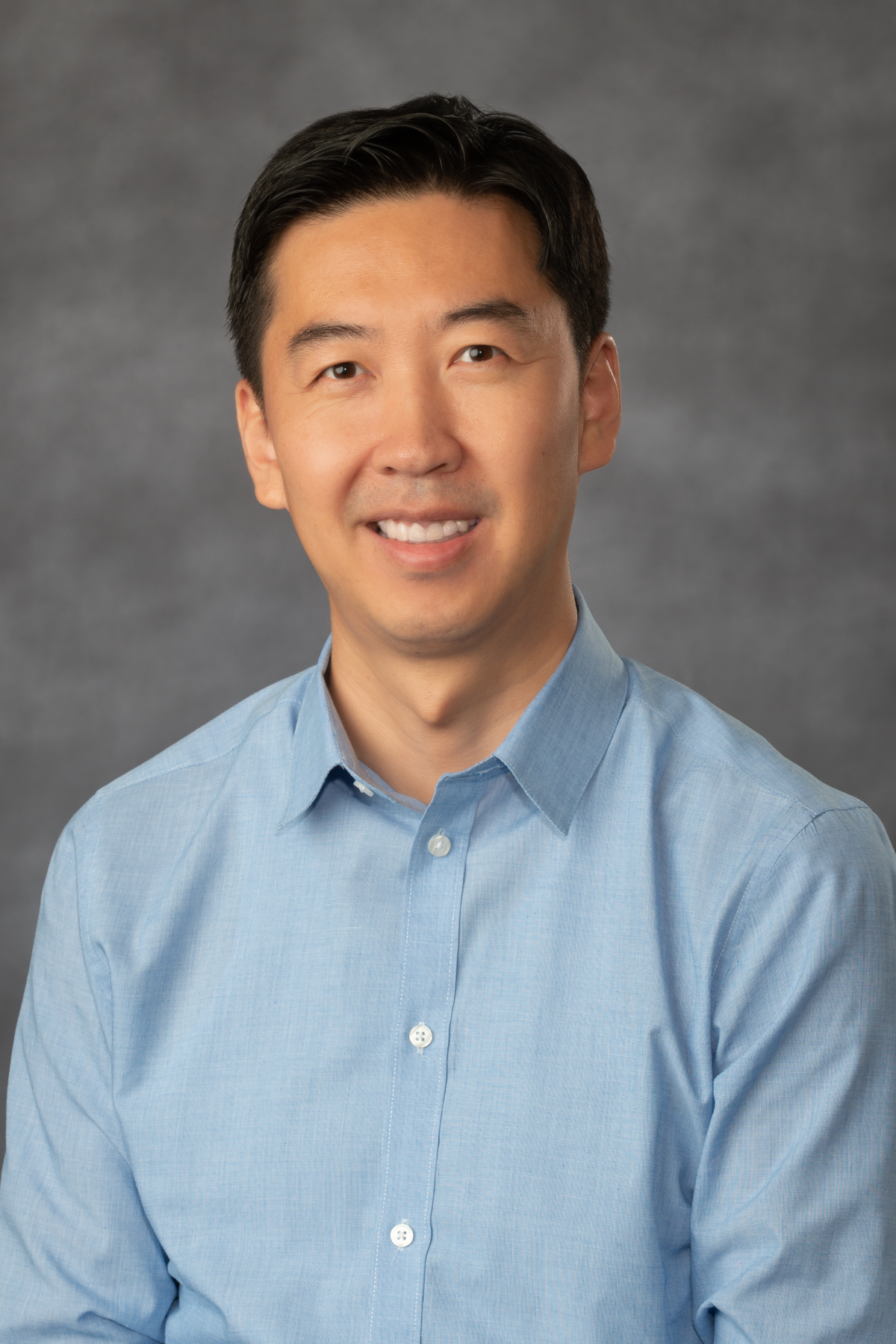
William Y. Song, PhD, DABR, FAAPM
Director, Medical Physics Graduate Program

William Y. Song, PhD, DABR, FAAPM
Director, Medical Physics Graduate Program
Radiation Oncology
Email: medphys@vcu.edu

Lori Cates
Program Coordinator, Medical Physics Graduate Education and Residency Programs

Lori Cates
Program Coordinator, Medical Physics Graduate Education and Residency Programs
Radiation Oncology, Division of Medical Physics
Email: medphys@vcu.edu
Course Descriptions
Semester course; 1 lecture hour. 1 credit. Restricted to medical physics graduate students. This course will cover fundamental gross anatomy, pathology and physiology as necessary for medical physicists. It will include basic medical terminology and have a focus on cross-sectional CT imaging and MRI, as well as 2-D X-ray imaging. Basic information on pathophysiology of cancer diseases and cancer treatment strategies will be provided.
Semester course; 3 lecture hours. 3 credits. Prerequisites: PHYS 376 and PHYS 380 or equivalents, or permission of instructor. Covers the fundamental conceptual, mathematical and physical aspects of radiation interactions with matter and energy deposition, including a thorough understanding of basic quantities and units. Application to the principles and methods of radiation detection and dosimetry will be emphasized.
Semester course; 3 lecture hours. 3 credits. Covers the fundamental conceptual and technical aspects of the use of ionizing radiation to evoke a therapeutic response/benefit to patients. Treatment planning and dose calculations for external beam radiation therapy and brachytherapy are emphasized.
Semester course; 3 lecture hours. 3 credits. Theoretical foundation and practical application of health physics as applied to diagnostic radiology, nuclear medicine and radiation therapy. Regulatory and scientific aspects of the subject are covered. Mathematical models and physical principles of radioactive decay and radiation interactions are used to assess the relative values of different radiation safety practices.
Semester course; 3 lecture hours. 3 credits. Covers the fundamental aspects of radiobiology with specific emphasis on relative biological effectiveness and linear energy transfer, the oxygen effect, radiation carcinogenesis, DNA repair, hereditary effects of radiation, radiation-induced cell killing, cellular responses to radiation including cell cycle effects and activation of cell signal transduction pathways, early and late effects of radiation, and time, dose and fractionation in radiotherapy.
Semester course; 1-4 variable hours. 1-4 credits. Lectures, tutorial studies, library assignments in selected areas of advanced study or specialized laboratory procedures not available in other courses or as part of the research training.
Semester course; 1-3 lecture hours. 1-3 credits. Open to graduate students and to undergraduate students with advanced standing. An in-depth study of a selected topic in medical physics. See the Schedule of Classes for specific topics to be offered each semester and prerequisites. Applicable toward physics major requirements.
Semester course; 3 lecture and 1 laboratory hours. 3 credits. Covers the physics of X-ray production, radiography, fluoroscopy and computed tomography. Covers the basics of ultrasound physics, equipment, image quality, safety and quality assurance. Emphasis will be placed on the physical foundations of currently used diagnostic imaging techniques using X-rays and ultrasound and their relevance to the clinical setting.
Semester course; 3 lecture hours. 3 credits. Covers the physics of magnetic resonance imaging. Emphasis will be placed on the physical foundations of currently used diagnostic techniques and their relevance to the clinical setting. The classroom lectures will be enhanced through a series of integrated laboratory exercises.
Semester course; 3 lecture and 2 laboratory hours. 4 credits. Prerequisites: PHYS 563 and PHYS 567 or instructor's permission. The course presents a survey of modern developments and methodological tools used in the following areas of radiation oncology physics: experimental dosimetry, computational dosimetry, quality assurance and commissioning, and advanced treatment planning and delivery modalities. By means of hands-on projects and literature reviews, students will become acquainted with the medical physics literature and acquire practical skills in selected areas. The course consists of a coordinated set of didactic lectures and laboratory projects.
Semester course; 2 lecture and 1 laboratory hours. 2 credits. Covers the physics of nuclear medicine imaging (including PET). Emphasis will be placed on the physical foundations of currently used diagnostic techniques and their relevance to the clinical setting.
Semester course; variable hours. 1-3 credits. May be repeated for credit. Prerequisites: at least one graduate medical physics course and permission of instructor. Clinical rotations in various medical physics sub-specialties.
Semester course; 3 lecture hours. 3 credits. Covers the fundamental aspects of radiobiology with specific emphasis on relative biological effectiveness and linear energy transfer, the oxygen effect, radiation carcinogenesis, DNA repair, hereditary effects of radiation, radiation-induced cell killing, cellular responses to radiation including cell cycle effects and activation of cell signal transduction pathways, early and late effects of radiation, and time, dose and fractionation in radiotherapy.
Semester course; 1 lecture hour. 1 credit. Review and discussion of relevant journal articles from the medical physics literature. May be repeated for credit with instructor's permission.